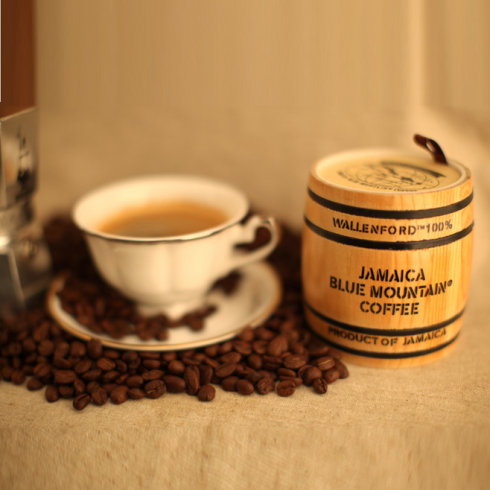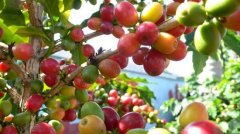Export of coffee Ethiopian coffee exports high-quality coffee beans from Africa
Coffee is Ethiopia's most important export cash crop and the main source of Ethiopia's foreign exchange earnings. Ethiopia's coffee exports account for about 3% of the world market, making it the eighth largest coffee exporter in the world. Coffee exports increased steadily from 58000 tons in 1990 to 110000 tons in 1995-1996 and remained at this level in the following years. The export volume exceeded 110000 tons from 2001 to 2002 and reached 127000 tons from 2002 to 2003. As the price of coffee on the international market has been declining for a decade, Ethiopia's foreign exchange earnings have been seriously affected. Before the sharp drop in coffee prices, coffee exports accounted for more than half of Ethiopia's foreign exchange earnings, but now they account for only about 35 per cent. But according to the International Coffee Organization, coffee prices rebounded in 2002, rising from 41 cents per pound in September 2001 to 52 cents per pound in 2002 and 59.7 cents per pound in 2003. The average price in March 2004 was 60.8 cents per pound, an increase of 50% over September 2001. This is excellent news for Ethiopia.
Ethiopian people are addicted to coffee. In 2003, domestic consumption accounted for 42.3% of the total output, with a per capita consumption of 3 kg. But more than half of the coffee produced each year is used for export to earn foreign exchange. The main exporters include the United States, Italy, the United Kingdom, Sweden, Norway, Greece, France, Belgium, Germany and Australia.
Before 1974, the right to produce, process and trade coffee was in private hands. During the military administration, private farms were nationalized and smallholder coffee producers were snubbed. In 1991, the Ethiopian Transitional Government issued a new economic policy to encourage private businessmen to export coffee. As a result, the number of private coffee exporters has increased sharply. Nearly 90% of coffee exports are now in the hands of private exporters.
Important Notice :
前街咖啡 FrontStreet Coffee has moved to new addredd:
FrontStreet Coffee Address: 315,Donghua East Road,GuangZhou
Tel:020 38364473
- Prev

Jamaica Blue Mountain Coffee Brazilian Coffee Colombia Coffee What's the difference between these three coffees
Jamaica Coffee Is Jamaica Blue Mountain Coffee the Best Large Coffee in the World? Almost everyone who has heard of Jamaica Blue Mountain Coffee knows it is the most expensive coffee in the world, but not everyone knows why. Like Rolls-Royce cars and Stradivarius violins, when something
- Next

The special flavor of Ethiopian coffee the characteristics of African coffee beans
The natural characteristics of coffee beans include large coffee beans.
Related
- Does Rose Summer choose Blue, Green or Red? Detailed explanation of Rose Summer Coffee plots and Classification in Panamanian Jade Manor
- What is the difference between the origin, producing area, processing plant, cooperative and manor of coffee beans?
- How fine does the espresso powder fit? how to grind the espresso?
- Sca coffee roasting degree color card coffee roasting degree 8 roasting color values what do you mean?
- The practice of lattes: how to make lattes at home
- Introduction to Indonesian Fine Coffee beans-- Java Coffee producing area of Indonesian Arabica Coffee
- How much will the flavor of light and medium roasted rose summer be expressed? What baking level is rose summer suitable for?
- Introduction to the characteristics of washing, sun-drying or wet-planing coffee commonly used in Mantenin, Indonesia
- Price characteristics of Arabica Coffee Bean Starbucks introduction to Manning Coffee Bean Taste producing area Variety Manor
- What is the authentic Yega flavor? What are the flavor characteristics of the really excellent Yejasuffi coffee beans?

